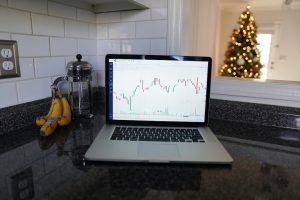Forex, also known as foreign exchange, is a decentralized market where individuals and institutions can buy and sell different currencies. The forex market is one of the largest financial markets in the world, with over $5 trillion traded daily. To succeed in forex trading, traders need to be equipped with both technical and fundamental analysis skills. However, one critical aspect that is often overlooked is trading psychology. In this article, we will explore what trading psychology is and why it is important in forex trading.
Trading psychology refers to the emotional and mental state of a trader when executing trades. It involves understanding and managing one’s emotions, thoughts, and behaviors when trading. Trading psychology is an essential component of successful trading, as it can influence a trader’s decision-making process and performance.
The forex market is inherently volatile and unpredictable, which can cause traders to experience a range of emotions such as fear, greed, and anxiety. These emotions can cloud a trader’s judgment and lead to impulsive decisions that can result in losses. Therefore, it is important for traders to develop a sound trading psychology to manage their emotions and make rational decisions.
One of the most common emotions that traders experience is fear. Fear can arise from the fear of losing money or missing out on profitable trades. This fear can lead traders to become hesitant and miss out on profitable opportunities or hold on to losing trades for too long. To overcome fear, traders need to have a solid trading plan and stick to it. They should also have a risk management strategy in place to limit losses.
Another emotion that can affect a trader’s performance is greed. Greed can cause traders to overtrade and take on too much risk. This can lead to losses that could have been avoided. To avoid falling into the trap of greed, traders need to have realistic expectations of their profits and losses. They should also avoid revenge trading, where they try to make up for losses by taking on more risky trades.
Trading psychology also involves managing one’s mindset and behavior. Traders should always approach trading with a positive attitude and be open to learning and adapting to new market conditions. They should also avoid emotional trading and stick to their trading plan. Additionally, traders should take breaks when they feel overwhelmed or stressed, as this can help them maintain a clear and focused mind.
In conclusion, trading psychology is a critical aspect of successful forex trading. It involves understanding and managing one’s emotions, thoughts, and behaviors when trading. Traders need to develop a sound trading psychology to manage their emotions and make rational decisions. By managing their emotions, traders can avoid impulsive decisions that can result in losses and increase their chances of success in the forex market.





